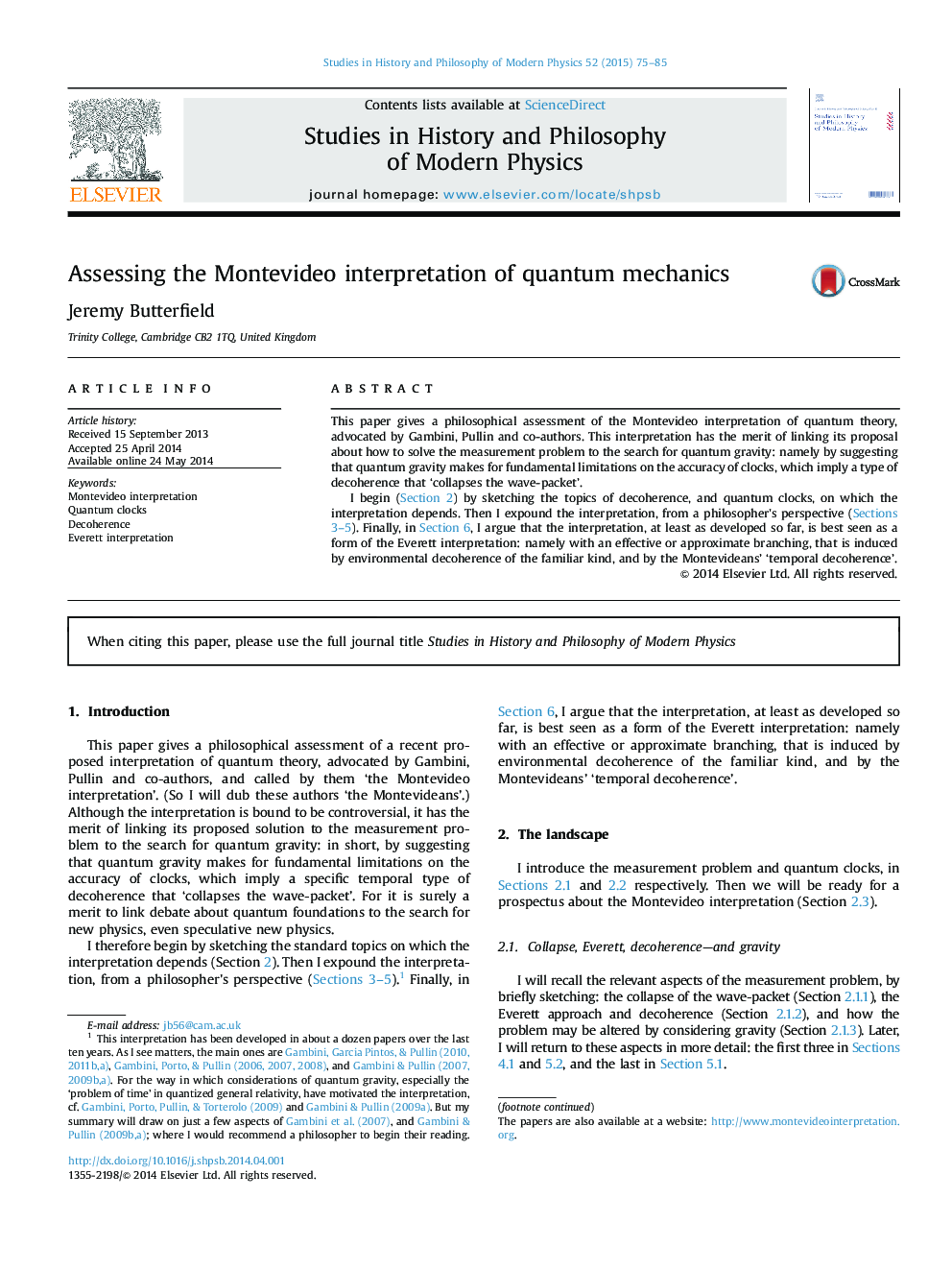| کد مقاله | کد نشریه | سال انتشار | مقاله انگلیسی | نسخه تمام متن |
|---|---|---|---|---|
| 1161007 | 1490425 | 2015 | 11 صفحه PDF | دانلود رایگان |
This paper gives a philosophical assessment of the Montevideo interpretation of quantum theory, advocated by Gambini, Pullin and co-authors. This interpretation has the merit of linking its proposal about how to solve the measurement problem to the search for quantum gravity: namely by suggesting that quantum gravity makes for fundamental limitations on the accuracy of clocks, which imply a type of decoherence that ‘collapses the wave-packet’.I begin (Section 2) by sketching the topics of decoherence, and quantum clocks, on which the interpretation depends. Then I expound the interpretation, from a philosopher׳s perspective (3, 4 and 5). Finally, in Section 6, I argue that the interpretation, at least as developed so far, is best seen as a form of the Everett interpretation: namely with an effective or approximate branching, that is induced by environmental decoherence of the familiar kind, and by the Montevideans’ ‘temporal decoherence’.
Journal: Studies in History and Philosophy of Science Part B: Studies in History and Philosophy of Modern Physics - Volume 52, Part A, November 2015, Pages 75–85
